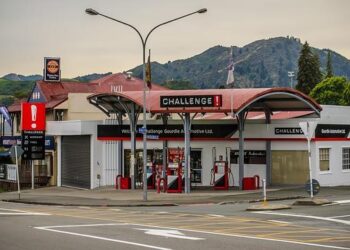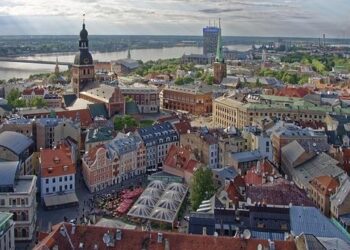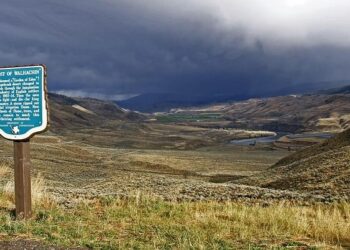In the lead-up to 2025, Latvia continues to assert itself as a dynamic destination for foreign direct investment (FDI), attracting renewed attention from global investors amid evolving regulatory landscapes. The latest edition of “Foreign Direct Investment Reviews 2025: Latvia,” produced by White & Case LLP, offers an in-depth analysis of the country’s investment climate, legal framework, and key sector opportunities. This comprehensive report highlights recent policy developments, cross-border investment trends, and emerging challenges that stakeholders should consider when navigating Latvia’s market. As businesses and governments prepare for the year ahead, White & Case’s insights provide a timely resource for understanding the prospects and complexities of investing in Latvia in 2025.
Foreign Direct Investment Trends in Latvia Shaping 2025
Latvia is witnessing a significant shift in its foreign direct investment landscape as it approaches 2025. Investors are increasingly drawn to the country’s strategic position as a gateway between Western Europe and the Baltics, coupled with favorable government policies aimed at fostering innovation and sustainability. In particular, sectors such as technology, renewable energy, and advanced manufacturing are emerging as prime targets for capital infusion. Enhanced digital infrastructure and a skilled labor force further cement Latvia’s appeal in a competitive regional market.
Recent data highlights several key trends shaping the investment climate:
- Growing Interest from Nordic and Asian Markets: Companies from Sweden, Finland, China, and South Korea are among the top sources of fresh investments.
- Focus on Green Technologies: Government incentives support projects that align with EU climate goals, boosting investments in clean energy and eco-friendly solutions.
- Increased M&A Activity: Strategic acquisitions and joint ventures are on the rise, signaling confidence in Latvia’s long-term market potential.
| Sector | Investment Growth % (2023-2024) | Notable Investor Countries |
|---|---|---|
| Technology | 18% | Finland, China, USA |
| Renewable Energy | 22% | Sweden, Germany, South Korea |
| Advanced Manufacturing | 15% | Poland, Netherlands, Japan |
Regulatory Landscape and Compliance Challenges for Investors
Latvia’s evolving regulatory framework presents a complex environment for foreign investors aiming to navigate the nuances of compliance in 2025. The government has intensified scrutiny on sectors deemed vital to national security and economic sovereignty, including telecommunications, energy, and critical infrastructure. Investors must now comply with expanded notification requirements under the Foreign Direct Investment (FDI) screening mechanism, which assesses not only ownership structures but also the potential impact on national security and public order. Non-compliance risks include prolonged transaction reviews, penalties, or even prohibition of investments, emphasizing the need for thorough due diligence and early engagement with regulatory authorities.
Key compliance challenges faced by investors in Latvia include:
- Complex approval processes involving multiple agencies, often with overlapping jurisdictions.
- Heightened transparency obligations demanding detailed disclosure of ownership, financing sources, and transaction intent.
- Dynamic legal amendments requiring continuous monitoring to adapt investment strategies accordingly.
To aid in assessing sectoral risks and procedural timelines, the following table summarizes typical review periods and sector focus areas:
| Sector | Review Period | Primary Concern |
|---|---|---|
| Telecommunications | 45 days | Data security |
| Energy | 60 days | Supply stability |
| Financial Services | 30 days | Market integrity |
| Critical Infrastructure | 75 days | National security |
Strategic Recommendations for Navigating Latvia’s Investment Environment
Investors aiming to capitalize on Latvia’s evolving market should prioritize a nuanced understanding of the country’s regulatory landscape, which is characterized by a robust legal framework alongside dynamic economic reforms. Engaging local expertise early in the due diligence process can mitigate risks associated with compliance and licensing requirements. Additionally, strategic partnerships with established Latvian entities can unlock key market insights and foster smoother navigation of bureaucratic mechanisms.
To optimize entry and expansion, foreign investors are advised to focus on sectors aligned with Latvia’s national development priorities, such as green energy, information technology, and logistics. Emphasizing sustainability and innovation will not only align with government incentives but also enhance long-term viability. The following table outlines critical focus areas and recommended approaches to maximize investment impact:
| Focus Area | Recommended Approach | Potential Benefit |
|---|---|---|
| Green Energy | Utilize subsidies and joint ventures | Access to funding and reduced entry barriers |
| Information Technology | Leverage local talent and innovation hubs | Optimized R&D costs and tech development |
| Logistics | Develop infrastructure collaborations | Improved supply chain efficiency |
The Way Forward
As Latvia continues to position itself as an attractive destination for foreign direct investment, the 2025 outlook underscores both promising opportunities and evolving regulatory landscapes. Investors and stakeholders are advised to stay informed of the latest legislative changes and market trends detailed in this review by White & Case LLP. With a robust legal framework and strategic geographic location, Latvia remains a key player in the Baltic region’s investment sphere, warranting close attention in the year ahead.
















